A transnational European endeavour is actively addressing the needs of NGOs and LEAs professionals who work with refugees and asylum seekers in European host and transit countries. Its primary objective is to prevent radicalisation by ensuring successful inclusion and integration.
In the face of the global refugee crisis, Europe stands at a critical juncture. The continent has witnessed a significant influx of refugees, a demographic marked by its diversity and unique challenges. These challenges revolve around fostering the successful inclusion of refugees into host societies while simultaneously preventing radicalisation within this vulnerable population. This dual objective is a shared concern among European nations. In this context, the IN2PREV project stands out as an example of innovation and collaboration.
The recent IN2PREV 3rd Steering Committee Meeting served as a critical platform for discussions and planning to translate these ambitious objectives into reality. Firstly, we delved into the management of the ever-evolving IN2PREV Frontline Practitioners Network. This platform has grown significantly and matured into a valuable resource for experts and practitioners working in the fields of refugee integration and radicalisation prevention. It now provides a robust platform for knowledge exchange and collaboration among professionals, addressing the growing demand for effective communication within this sector.
Additionally, the meeting witnessed a comprehensive discussion about the framework for the Frontline Extremism Vulnerability Risk-Structured Evaluation Screening. This innovative tool is designed to identify key vulnerabilities within vulnerable populations, offering a structured approach to assessing and addressing risks. This tool will play a pivotal role in the project by providing practitioners with a means to understand the nuances of vulnerability and extremism risk within refugee populations more effectively.
During the meeting, plans were laid out for the upcoming Mentoring Scheme for Refugees and Asylum Seekers’ Successful Inclusion. This initiative holds significant promise in empowering vulnerable individuals, equipping them with the skills and support necessary for successful integration into their new communities. By focusing on mentoring, IN2PREV aims to foster a culture of support and guidance that enables refugees to become active contributors to their host communities, while also reducing the risks of radicalisation.
These issues discussed in the meeting are integral components that align seamlessly with the broader mission of IN2PREV. The initiative’s aim is to enhance the crucial involvement of NGOs and LEAs practitioners in the field of preventing radicalisation among the refugee population. The IN2PREV project seeks to provide practical and effective solutions for practitioners, equipping them to work more efficiently towards the integration and prevention of radicalisation among refugees.
As we move forward, our focus shifts to the practical implementation of the aforementioned frameworks for the screening tool and the Mentoring Scheme. These are the practical outcomes of our discussions and represent significant milestones in our journey. It’s in these next steps that we start translating our discussions and planning into actions that will directly impact the lives of refugees and asylum seekers.
Learn more about this project
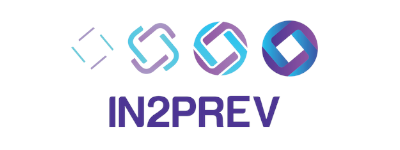
IN2PREV
Law enforcement and community cooperation and training approach to prevent radicalisation by ensuring refugees’ successful inclusion
The IN2PREV project Consortium is coordinated by BSAFE LAB – University of Beira Interior (Portugal) and partnered by IPS_Innovative Prison Systems (Portugal), the Polish Platform for Homeland Security (Poland), the Euro-Arab Foundation for Higher Studies (Spain), the European Association for Social Innovation (Romania), the Academy of Police Force in Bratislava (Slovakia), the Center for Security Studies (Bosnia and Herzegovina), the General Police Inspectorate of the Ministry of Internal Affairs (Moldova), and the Bureau of Migration and Asylum (Moldova).
For more information on the IN2PREV project, please visit its website.
Related projects
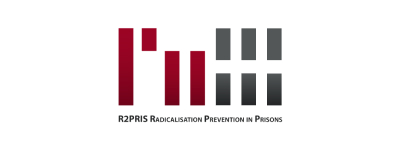
R2PRIS
Radicalisation Prevention in Prisons

COOPERHATE
Delivering a comprehensive approach to preventing, reporting, investigating and prosecuting hate crime and hate speech-related incidents in Portugal

PRACTICIES
Partnership against Radicalisation in Cities

FUTURE-ART
Sentinels of the Future: Together to Eradicate Human Trafficking

MIRAD
Multi-Ideological Radicalisation Assessment towards Disengagement
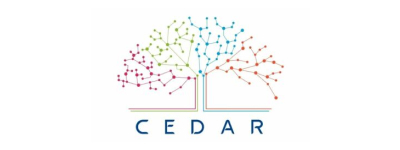
CEDAR
Continuing Education Against Radicalisation

INTEGRA
Integrated Community, Probation and Prison Services Radicalisation Prevention Approach

EUTEx
Developing a European framework for disengagement and reintegration of extremist offenders and radicalised individuals in prison
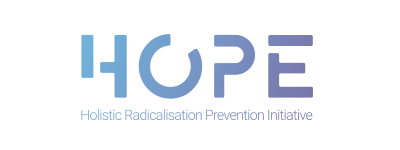
HOPE
Holistic Radicalisation Prevention Initiative (Balkan countries)
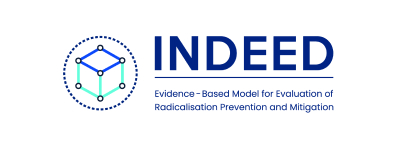
INDEED
Strengthening a comprehensive approach to preventing and counteracting radicalisation based on a universal evidence-based model for evaluation of radicalisation prevention and mitigation
Related news
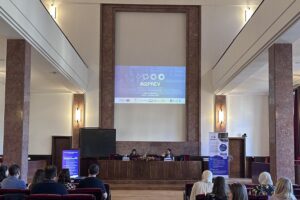
IN2PREV Final Conference highlights cross-sector collaboration for refugee inclusion and radicalisation prevention
Read More »
Standing united against hate: A national effort to prevent and tackle hate crime and hate speech in Portugal
Read More »
New IPS-led initiative unites efforts to protect religious communities, schools, and places of worship
Read More »
IPS contributes to shaping EU’s future agenda on radicalisation prevention at Brussels Town Hall meeting
Read More »



